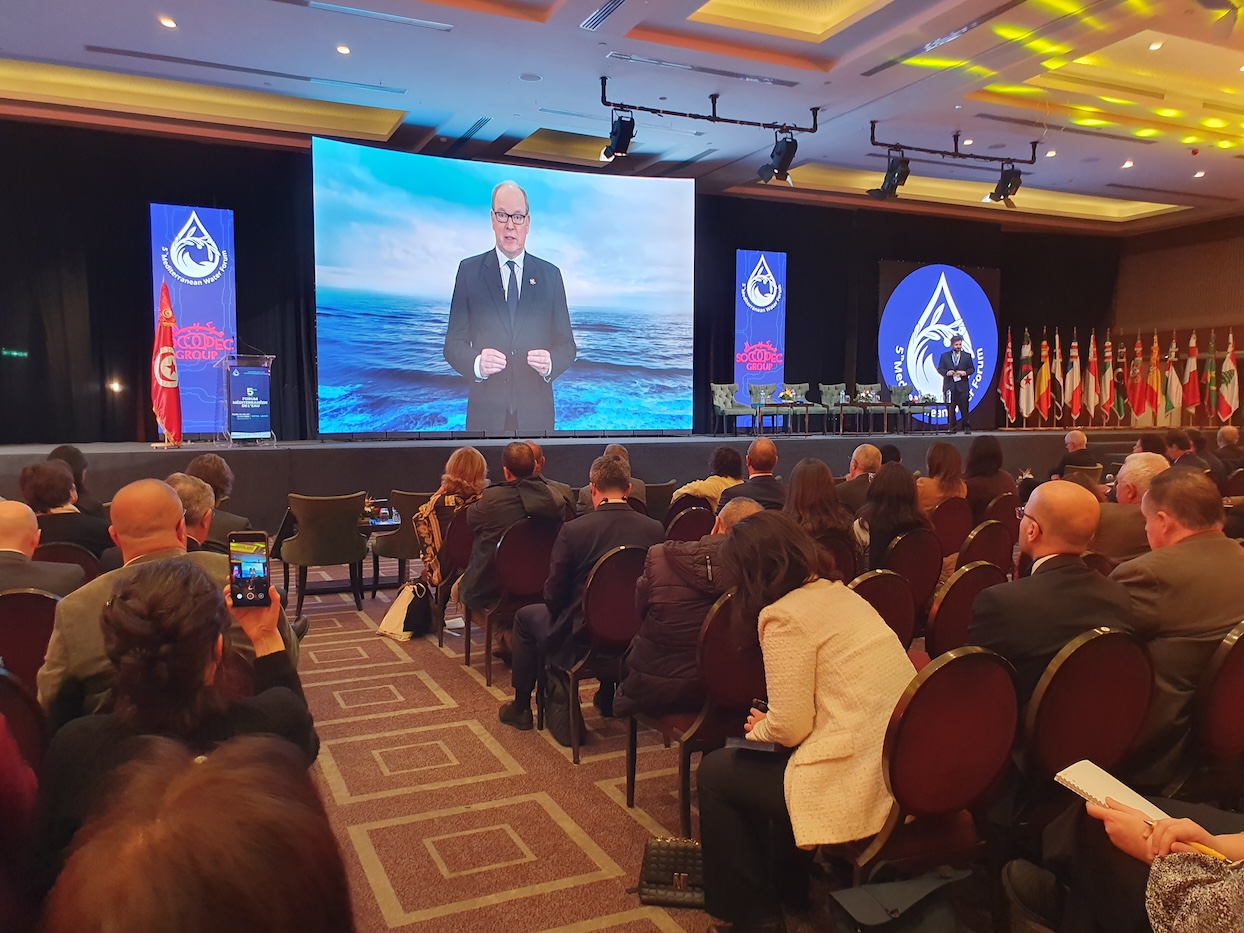
Mediterranean Water Forum: Freshwater Ecosystems at the Heart of Discussions During a Side Event in Tunis
Event
H.S.H. Prince Albert II of Monaco opened the plenary sessions of the 5th Mediterranean Water Forum on February 6th in Tunis. His support and commitment to the preservation of freshwater ecosystems were clearly expressed. In his speech, Prince Albert emphasized the crucial importance of preserving freshwater ecosystems. He called for strong commitments to their management and protection, concrete actions, and increased resources dedicated to them, highlighting the efforts of his Foundation's Initiative, DIMFE, in this field.
"We know: multilateral meetings tend to focus readily on major water access projects. Desalination plants, large water supply infrastructures, and other technological innovations are obviously responses to water scarcity. But these solutions are often expensive and energy-intensive. And they overshadow, in these political discussions, the need to preserve the very source of water, namely its natural environment: underground aquifers, springs, freshwater ecosystems." - H.S.H. Prince Albert II of Monaco.
Echoing Prince Albert II's words, a parallel event was organized by the Donors’ Initiative for Mediterranean Freshwater Ecosystems (DIMFE) in partnership with MedWET, entitled "How can nature respond to the water crisis?". Its goal: to remind that the preservation and restoration of freshwater ecosystems are absolute imperatives for the Mediterranean region, although they are often sidelined in multilateral water discussions.
During the event, speakers emphasized the urgency of acting in the face of the continued degradation of Mediterranean wetlands, highlighting their rich biodiversity and crucial role in climate change mitigation and water resource management.
"The availability of water for humans and socio-economic sectors depends on the good health of freshwater ecosystems." Raoudha Gafrej, General Director of Water World Alarming
Data were presented, with more than half of wetlands having disappeared in recent years, and the devastating consequences this will have on biodiversity, water quality, and resilience to climate change. Indeed, participants emphasized that these ecosystems play a vital role in flood regulation, drought mitigation, and biodiversity preservation.
Discussions highlighted the urgent need to pay increased attention to freshwater ecosystems, often neglected in favor of other priorities during water forums.
"Preserving and restoring wetlands is not only our life insurance for the future, but also our main ally in ensuring sustainable development for all Mediterranean countries." Anis Guelmami, Coordinator of the Mediterranean Wetlands Observatory
"Policymakers must recognize wetlands as key natural infrastructures for hydrological regulation, water filtration, and reducing flood and drought risks." Céline Dubreuil, Program Director, Blue Plan
"Public policies in Mediterranean countries do not sufficiently integrate the ecosystem-based approach to wetlands for water extraction, storage, treatment, and distribution, instead of gray infrastructure, as well as for climate change mitigation." Marianne Courouble, Policy Expert, MedWET
The side event also presented innovative nature-based solutions. Experts, representing organizations such as Living Planet Morocco, Blue Plan, SEMIDE, and the Institute for University Cooperation, shared their experiences and successes in wetland restoration, sustainable water resource management, and the use of advanced technologies to preserve these ecosystems.
Participants called for the mobilization of adequate funding for the preservation and restoration of freshwater ecosystems. DIMFE was presented on this occasion, a collaborative effort of allied funders to financially support the protection of these ecosystems. DIMFE can be an opportunity to obtain funding but also presents an investment solution for interested philanthropists and donors.
"A study shows how grants between 126 European foundations are distributed among 13 themes. Freshwater projects are among the least funded, with only 16 million euros allocated in 2021." Léa Glâtre, DIMFE Coordinator, Prince Albert II of Monaco Foundation
The recommendations highlight the crucial importance of freshwater ecosystems in the Mediterranean and call for their full integration into national and international policies. A holistic approach to water management, cooperation between Mediterranean states, and the mobilization of international financing are also recommended to address the crisis. Freshwater ecosystems must be at the center of decision-making and water resource management processes, considering them as vital solutions to face the crisis.